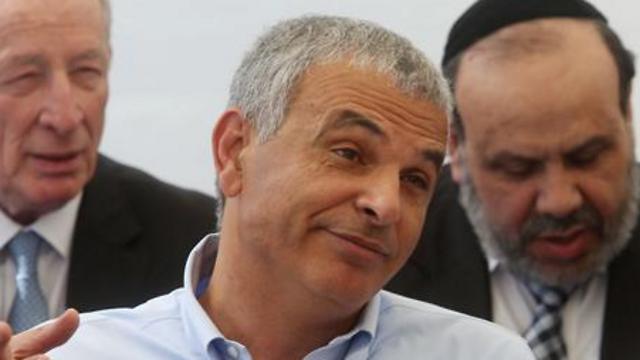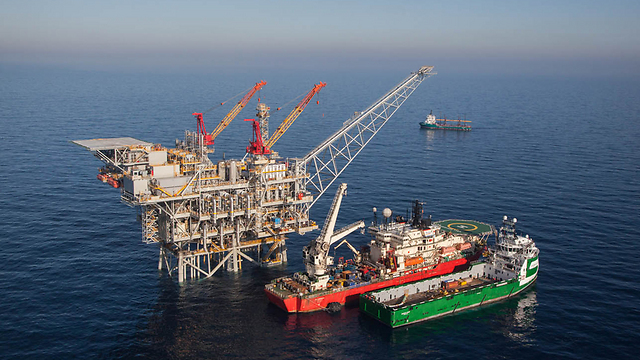
In the run-up to the March election, Kulanu chairman Moshe Kahlon expressed his support on several occasions for dismantling Israel's gas monopoly and opening the market to competition. Moreover, when asked in an interview with Channel 2 News if his friendship with businessman Kobi Maimon – one of the owners of energy company Isramco, which holds a near-30 percent stake in the Tamar gas field off the coast of Ashkelon – would stop him from dealing with the issue, he replied: "What has that got to do with it at all? I will deal with it."
But actions speak louder than promises – and on Tuesday, Finance Minister Kahlon announced that he would not be busying himself with the issue of gas finds and gas production, one of the pillars of the Israeli economy, due to his association with Maimon, who he described as "a close friend."
Kahlon added, nevertheless, that his position regarding the gas monopoly hadn't changed and that opening the gas market to competition remained of vital importance.
"Competition is the consumer's best friend," the finance minister said. "And therefore, there is a need to deal with monopolies of all kinds."
Kahlon went on to say that his powers as finance minister vis-à-vis the gas sector will be transferred to Prime Minister Benjamin Netanyahu – an arrangement that appears to have been worked out immediately following Kahlon's ministerial appointment but was announced only on Tuesday.
Kahlon's decision and the announcement concerning Netanyahu came just 24 hours after the resignation of Antitrust Commissioner David Gilo who opposes to the plan the government proposed Delek and Noble Energy in order to weaken their holdings in the Tamar and Leviathan natural gas fields.
According to the plan, Delek will have to sell all of its holdings in Tamar, and Noble Energy will reduce its holdings in Tamar, a move which Gilo believes is not sufficient in order to encourage competition.
"My decision to step down stems from a number of reasons, the foremost being that the government, especially the Finance Ministry and Energy Ministry, will do everything in its power to promote a framework natural gas policy that I am convinced will do little to promote competition in this important market," Gilo said on Monday.
Billions of dollars in damages a year
The financial importance of natural gas to the economy is enormous, and separating the finance minister from this field is likely to be problematic, officials in the field say.
Currently, Israel gets gas only from the Tamar field, the flow from which will not be sufficient during peak times in the upcoming years.
This problem was supposed to be resolved when the Leviathan field went online. However, the delays caused as a result of disagreements over the proposed structural change and other contentious issues mean that the Leviathan field will only start providing Israel with gas at the end of 2019, if not later.
The financial damage to the economy as a result of this is estimated at billions of dollars per year, which would necessitate once again increasing electricity rates.
Moreover, the delay is also expected to have an effect on the transfer of royalties and taxes from the use of the gas, which were supposed to help the Israeli economy.
It is now the government's task to prevent additional delays, and experts believe that finance minister's decision not to deal with this matter is likely to cause further delays.
"We won't repeat the mistake made by countries that sought an ideal solution for their gas, and sometimes for oil, and as a result both their gas and their oil remained deep under the sea or underground," Netanyahu said at Tuesday's cabinet meeting.
"We have a framework plan that is the result of extensive work carried out by various experts in the field. Not everyone agreed. Unfortunately, the antitrust commissioner did not agree, but we're moving forward. I will not allow any consideration, any pressure, any populist move to stop the flow of gas to the State of Israel. We'll get extract this gas from the depths of the sea, deliver it to the citizens of Israel, and benefit society at large."


















